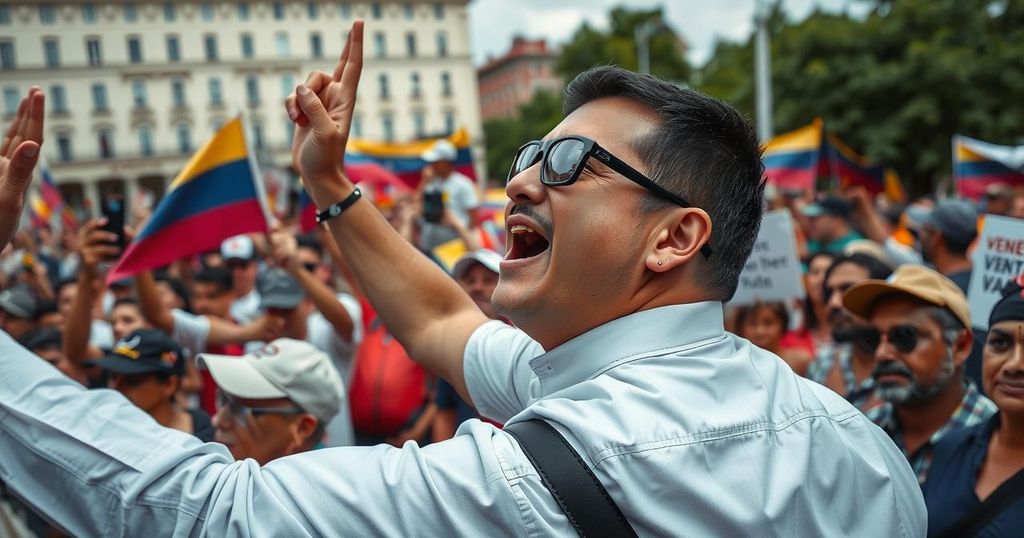Nicolás Maduro has been sworn in as Venezuela’s president for a new term amid allegations of election fraud. The opposition claims Edmundo González Urrutia won the July elections, countering Maduro’s administration, which maintains he is the legitimate president, based on the electoral council’s declaration. This ongoing dispute highlights significant political tensions and challenges to democracy in Venezuela.
On January 10, 2025, Nicolás Maduro was formally inaugurated as President of Venezuela for the term 2025-2031 during a ceremony held at the National Assembly, which is under the control of his ruling party. Despite opposition claims that Edmundo González Urrutia actually won the July elections, Maduro affirmed his pledge to uphold the constitution and lead the country towards peace and prosperity. The ceremony featured various high-ranking officials and was marked by Maduro signing an original copy of the constitution initially endorsed by the late President Hugo Chávez.
Maduro’s inauguration took place amidst significant controversy surrounding the election results from July 28. The National Electoral Council (CNE), which has yet to release detailed election results, declared Maduro the winner, a claim that the opposition disputes. The Democratic Unitary Platform, representing the opposition, alleges that they have gathered substantial documentation—approximately 85% of electoral materials—substantiating their claim that González Urrutia is the true victor. Countering this assertion, the Maduro administration has branded the opposition’s evidence as unfounded. In parallel, Defense Minister Vladimir Padrino López reaffirmed his loyalty to Maduro and the armed forces’ support for his presidency.
Nicolás Maduro’s presidency has been marred by allegations of electoral fraud and political discord. The legitimacy of elections in Venezuela has been increasingly questioned, especially with the opposition’s insistence that electoral processes are manipulated to favor the ruling party. The gap between the government and its opposition has widened, leading to potential unrest and international scrutiny aimed at Venezuela’s democracy and governance. The situation is further complicated by the historical context established under the late Hugo Chávez, whose governance style influences Maduro’s approach in dealing with dissent and maintaining power.
In conclusion, Nicolás Maduro’s recent inauguration is enveloped in allegations of election fraud, demonstrating the deep-rooted divisions within Venezuelan politics. While Maduro asserts his commitment to constitutional democracy, the opposition firmly contests the election outcomes, thereby creating a contentious political landscape. The lack of transparency from electoral authorities only exacerbates the uncertainty surrounding Venezuela’s democratic processes.
Original Source: efe.com






